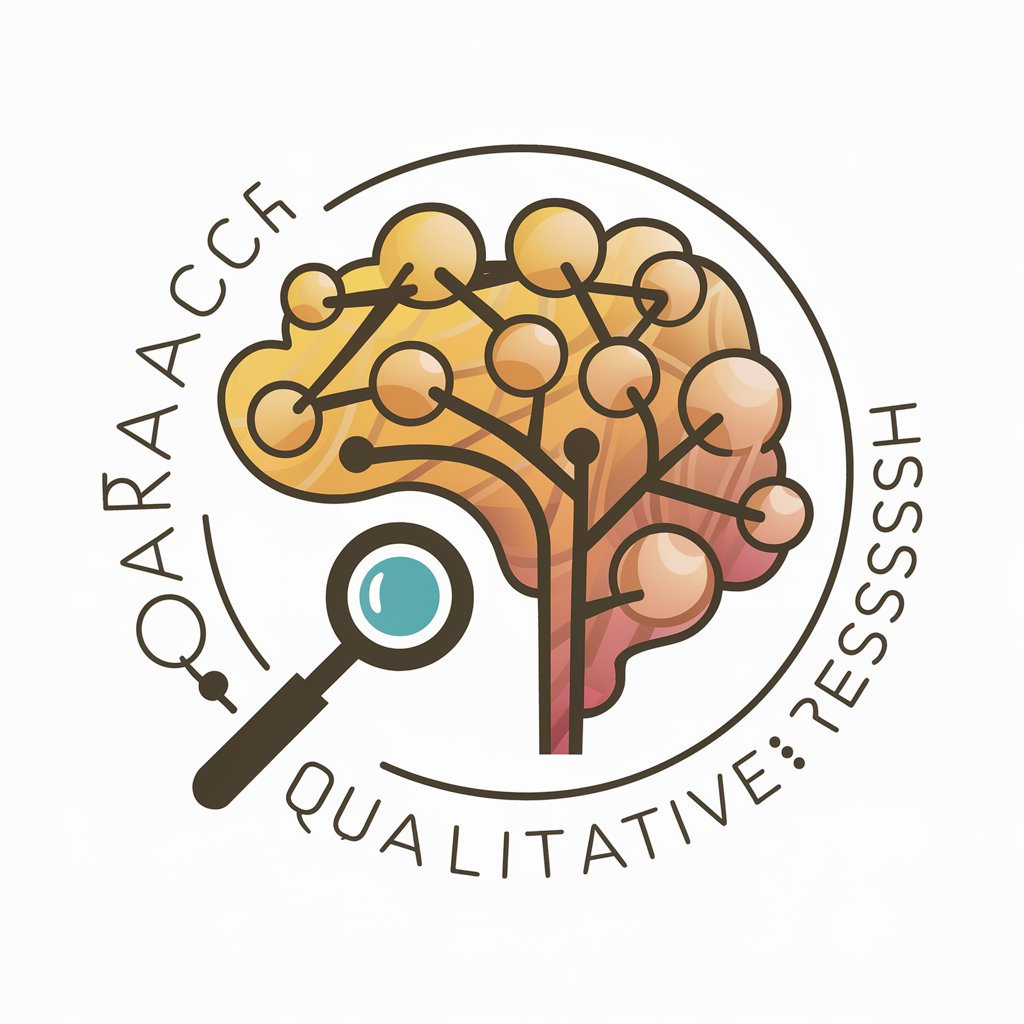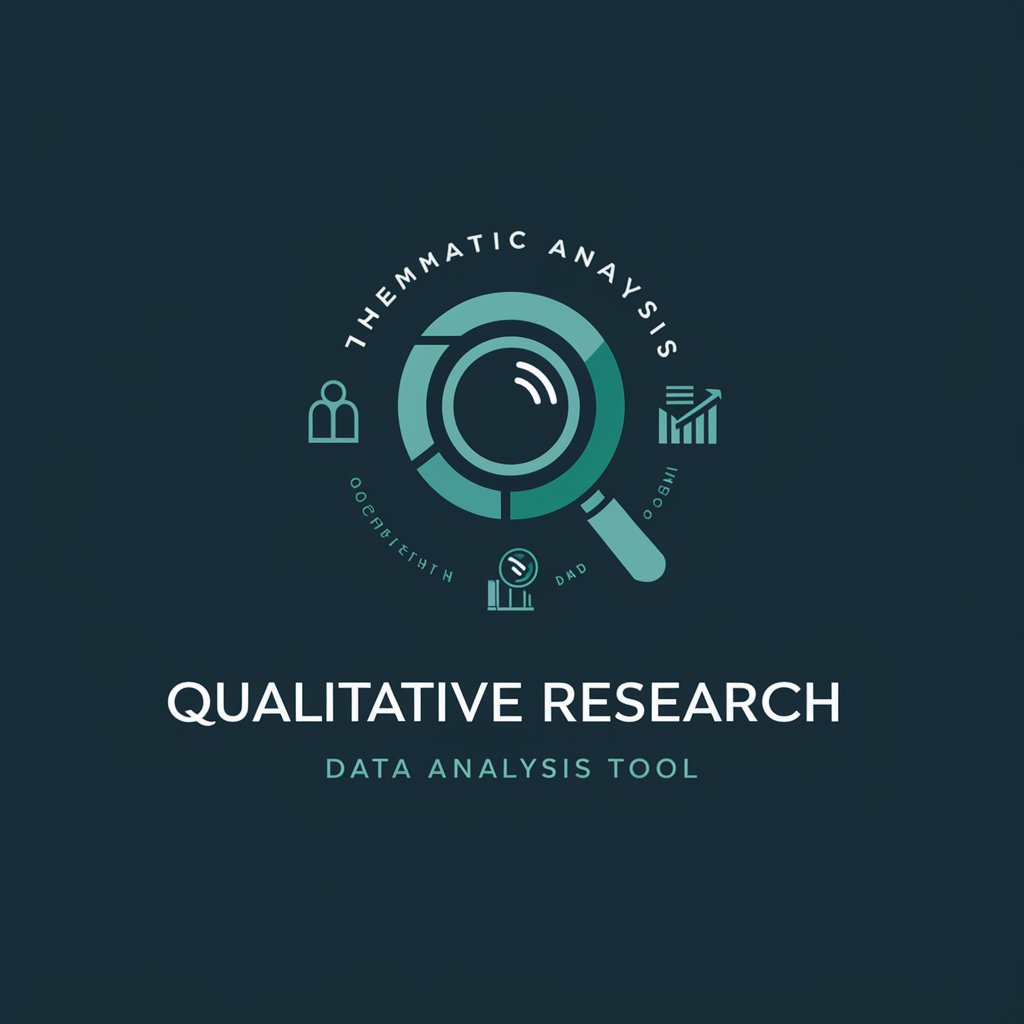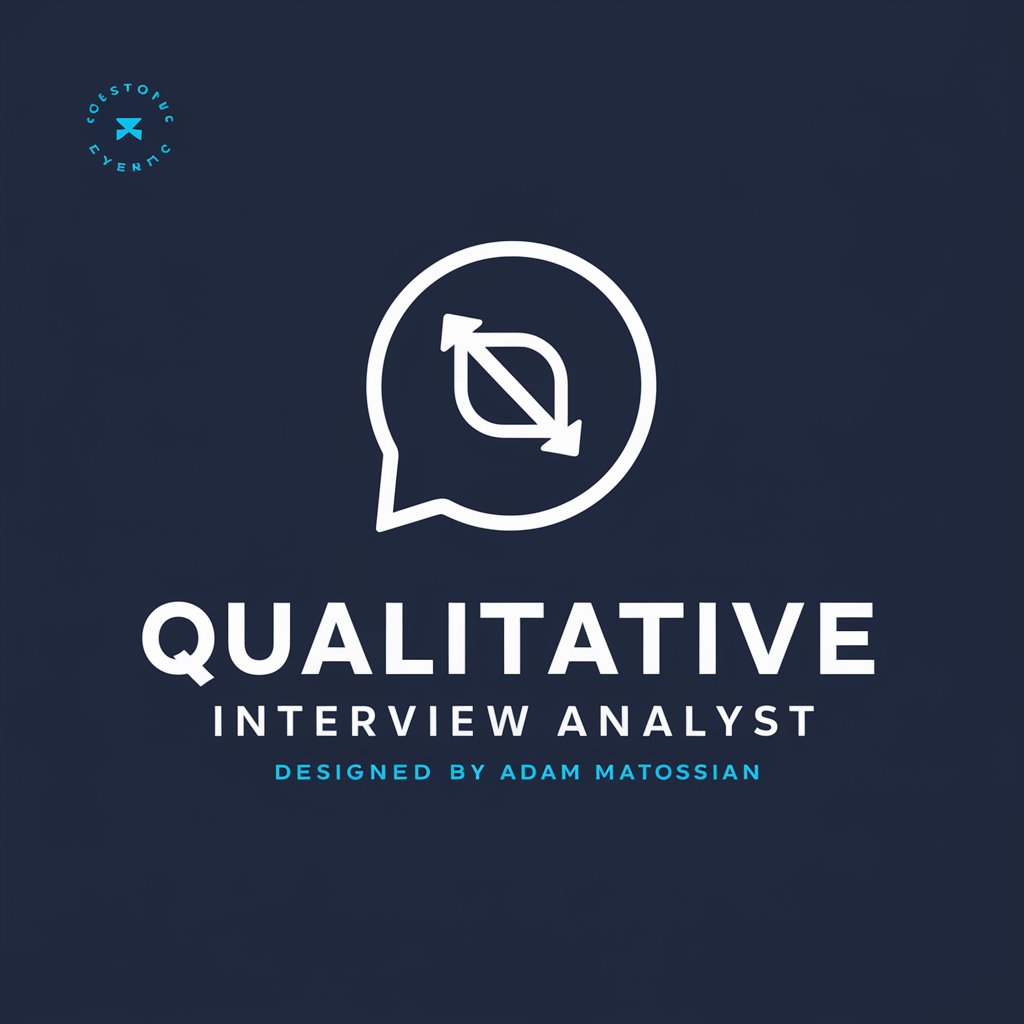
Qualitative Research - Qualitative Research Exploration

Hello! I'm here to help you explore the depths of qualitative research.
Unveil human insights with AI-powered research
How can I analyze thematic patterns in interview transcripts?
What are effective strategies for conducting ethnographic research?
Can you guide me through coding qualitative data?
What methods can I use to ensure the reliability of my qualitative findings?
Get Embed Code
Qualitative Research: An Overview
Qualitative Research focuses on understanding and interpreting non-numerical data to explore human behaviors, social phenomena, and cultural patterns. Unlike quantitative research, which seeks to quantify data and apply statistical analysis, qualitative research delves into the complexities of human experience, offering insights into the why and how of human behavior and decisions. It employs methods such as interviews, observations, and textual analysis to gather deep, narrative data. For example, a qualitative study on workplace culture might involve conducting in-depth interviews with employees to understand their experiences and perceptions, and observing workplace interactions to capture the nuances of communication and behavior. This approach allows researchers to uncover underlying meanings, motivations, and emotions that drive human actions. Powered by ChatGPT-4o。

Core Functions of Qualitative Research
In-depth Interviews
Example
Exploring patient experiences with healthcare services
Scenario
Researchers conduct semi-structured interviews with patients to gather detailed insights into their feelings, perceptions, and satisfaction with healthcare treatments. These interviews enable an understanding of personal healthcare journeys, highlighting areas for improvement in patient care and services.
Observational Studies
Example
Studying classroom dynamics in educational research
Scenario
Educational researchers observe interactions within classrooms to understand teaching methods, student engagement, and learning environments. By noting behaviors and interactions, they identify effective teaching practices and challenges within the classroom setting.
Textual and Media Analysis
Example
Analyzing social media trends to understand public opinions on social issues
Scenario
Researchers examine content, comments, and engagement on social media platforms to gauge public sentiment and discourse around social issues. This analysis provides insights into societal attitudes, emerging trends, and the impact of digital communication on public opinion.
Who Benefits from Qualitative Research?
Academics and Students
Individuals in academic settings, including researchers and students, utilize qualitative research to explore complex questions within their fields of study. They benefit from the nuanced understanding and detailed analysis that qualitative methods offer, enhancing their research projects, theses, and dissertations with rich, contextual data.
Market Researchers
Market researchers apply qualitative techniques to understand consumer behavior, preferences, and experiences. Through methods like focus groups and interviews, they gain insights into customer needs and perceptions, informing product development, marketing strategies, and customer service improvements.
Policy Makers and Social Scientists
Policy makers and social scientists use qualitative research to inform policy development and social programs. By understanding the lived experiences of communities and individuals, they can create policies and initiatives that better address societal needs and challenges.

Guidelines for Utilizing Qualitative Research
1
Start by exploring yeschat.ai for a complimentary trial, accessible immediately without any requirement for signing up or subscribing to ChatGPT Plus.
2
Identify your research question or area of interest. Clarify what you aim to understand through your qualitative research, whether it's human behavior, social phenomena, or cultural insights.
3
Gather your data through methods like interviews, focus groups, observations, or document analysis. Ensure your methods align with the depth and breadth of your research question.
4
Analyze the collected data using thematic analysis, coding, or narrative analysis to identify patterns, themes, and insights. This step is crucial for deriving meaningful conclusions from your data.
5
Reflect and report on your findings. Construct a coherent narrative that connects your research question, methodology, data analysis, and insights. Consider the implications of your findings for theory, practice, and future research.
Try other advanced and practical GPTs
Hip Hop Cartoon Creator
Craft Your Hip-Hop Art with AI

Will
Streamlining Estate Planning with AI

Brazilian Civil Law Expert
Navigating Brazilian Law with AI Precision

Proud Plumbing and Gas Location Pages
AI-powered localization for plumbing content

计算机硬件助理
AI-powered computer hardware guidance

Pulp Art Prompter
Reviving Pulp Art with AI Innovation

DCM Proposal Generator
Tailor Your Pitch with AI Power

Real Estate Script Writer
Craft Persuasive Real Estate Scripts with AI

ResumeBot
Elevate Your Resume with AI Precision

Vendor Management
Optimize your vendor relationships with AI

Book Buddy
Empowering Your Publishing Journey

Content Whiz for Wizz Life
Craft Your Dream Smile with AI

In-Depth Q&A on Qualitative Research
What makes qualitative research different from quantitative research?
Qualitative research focuses on exploring and understanding the depth of human behavior, social phenomena, and cultural patterns through non-numerical data. It contrasts with quantitative research, which quantifies variables to find patterns and test hypotheses using statistical techniques.
Can you explain how to conduct an effective interview for qualitative research?
Conducting an effective interview involves careful preparation, including designing open-ended questions that encourage detailed responses. Build rapport with participants to create a comfortable atmosphere, actively listen, and follow up with probing questions to dive deeper into the subject matter.
How do I choose a suitable method for data analysis in qualitative research?
Choosing a suitable method depends on your research goals and the nature of your data. Thematic analysis is versatile for identifying patterns across data, while narrative analysis suits analyzing stories or experiences, and grounded theory is ideal for developing a theory based on data observations.
What are some common challenges in qualitative research, and how can they be addressed?
Common challenges include subjective bias, maintaining data integrity, and ensuring ethical standards. These can be addressed by employing reflexivity, using multiple data sources (triangulation), and following strict ethical guidelines throughout the research process.
How can technology enhance qualitative research?
Technology, like AI-powered tools, can assist in managing and analyzing large volumes of qualitative data, improving accuracy in thematic analysis, and facilitating remote interviews and focus groups. It enables researchers to focus on deeper analytical and interpretive work.





